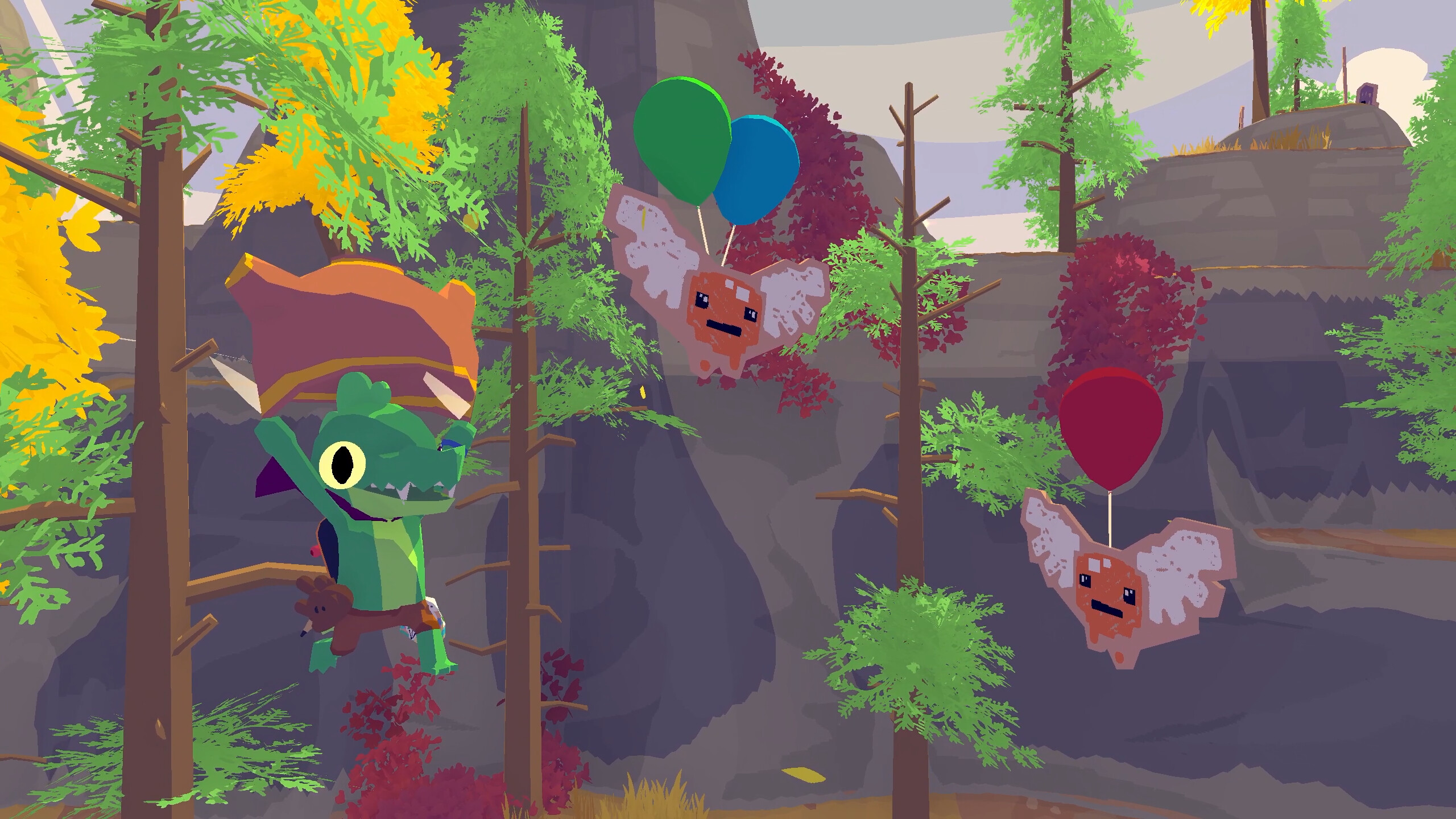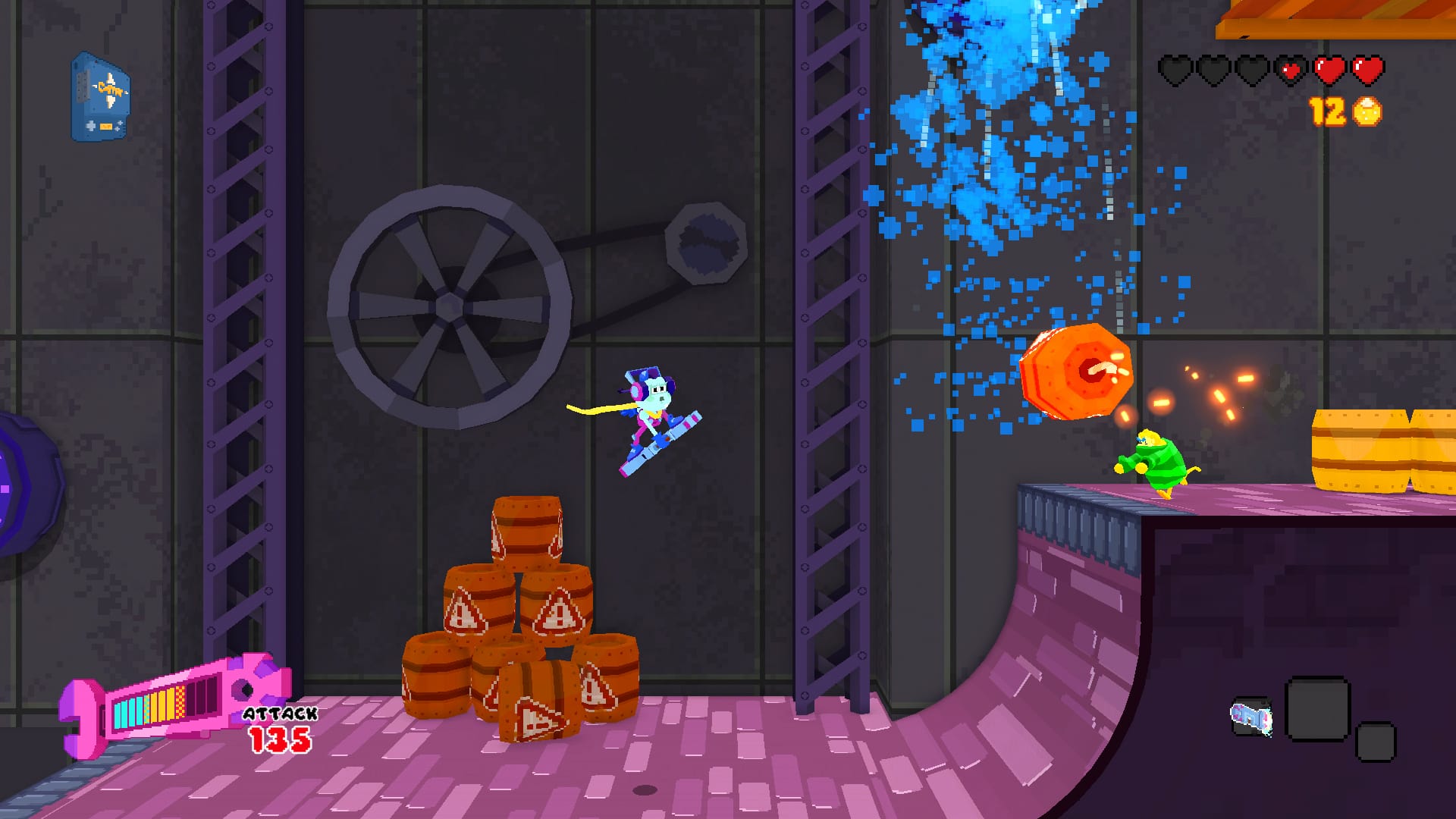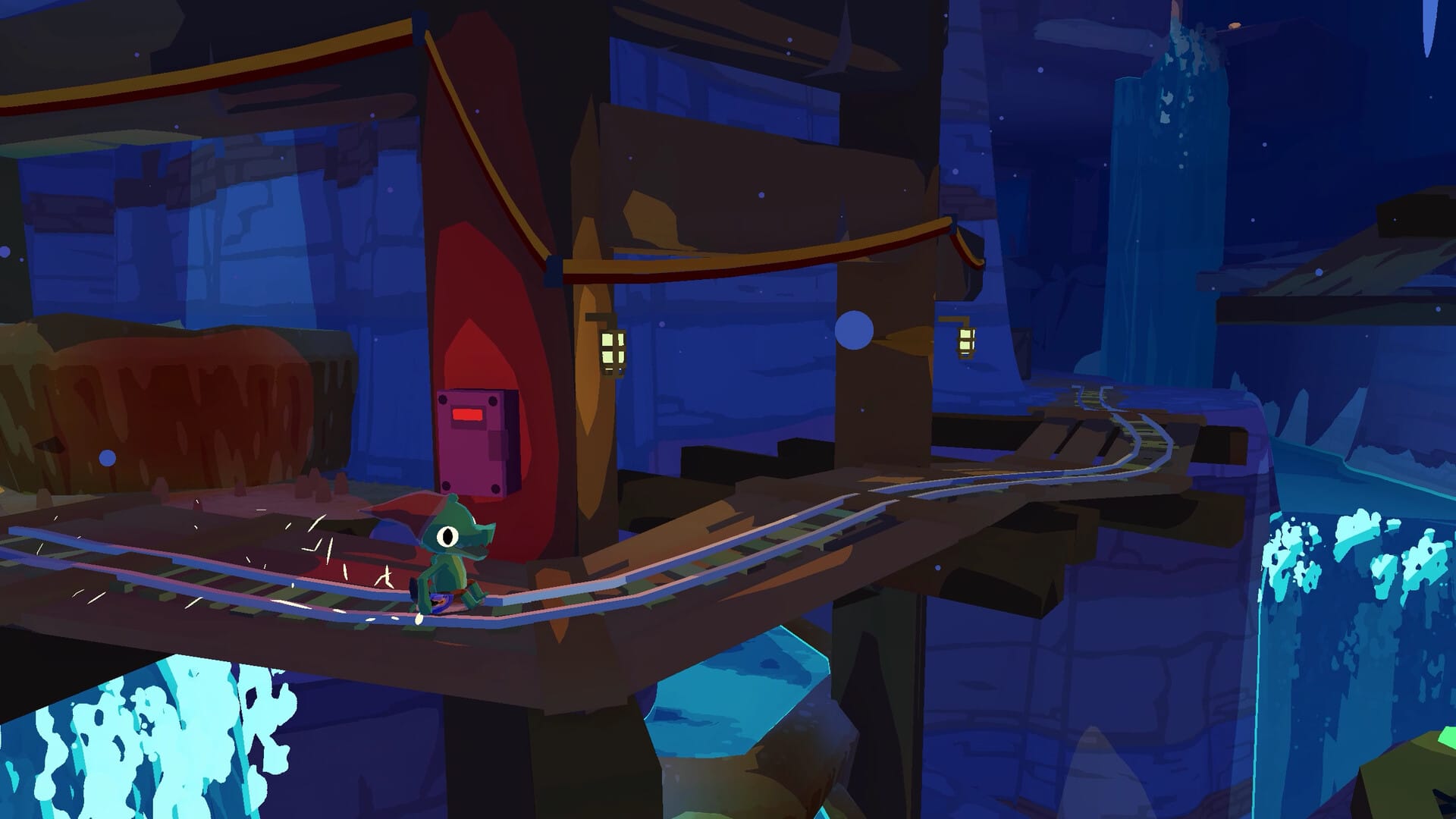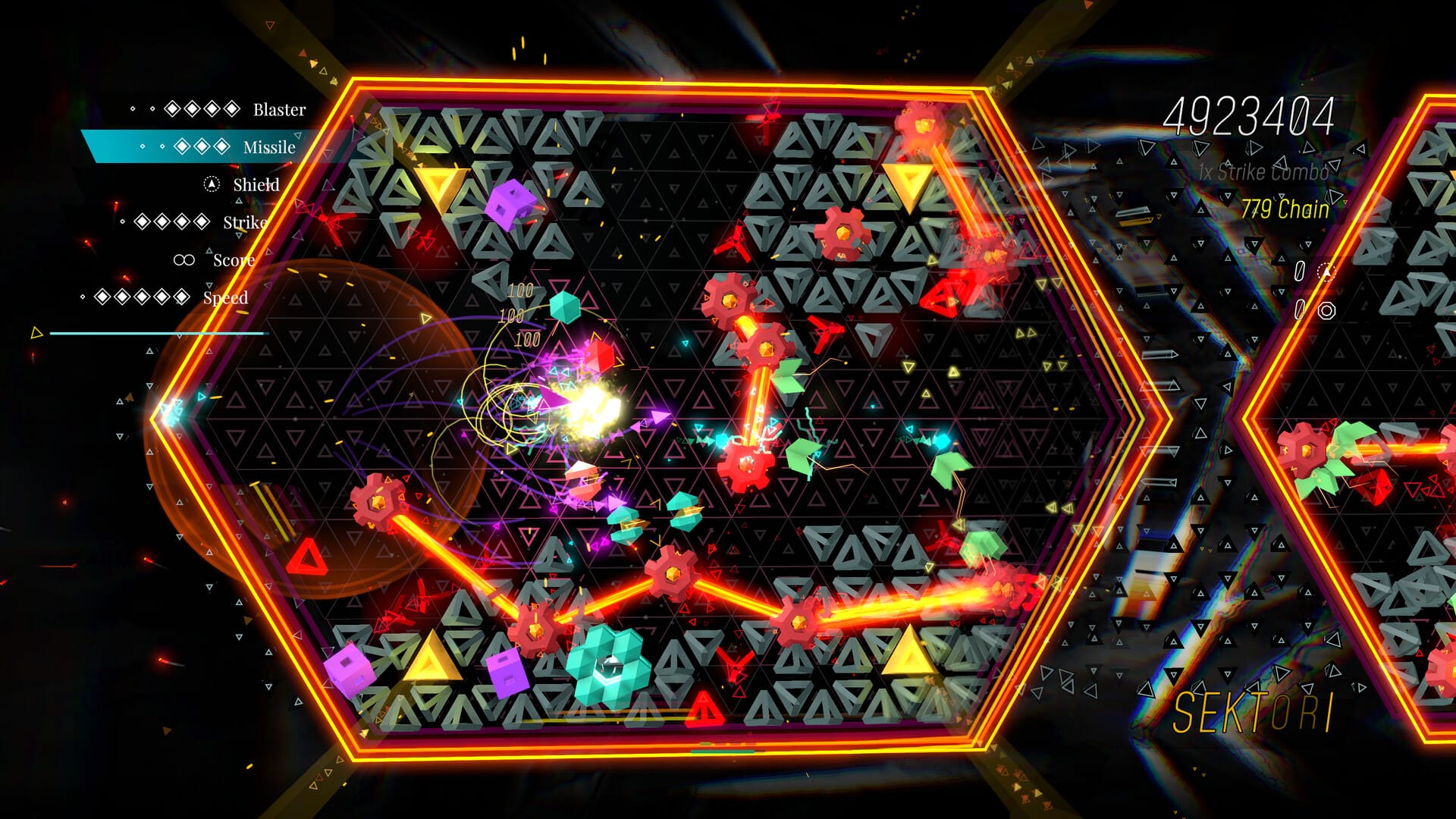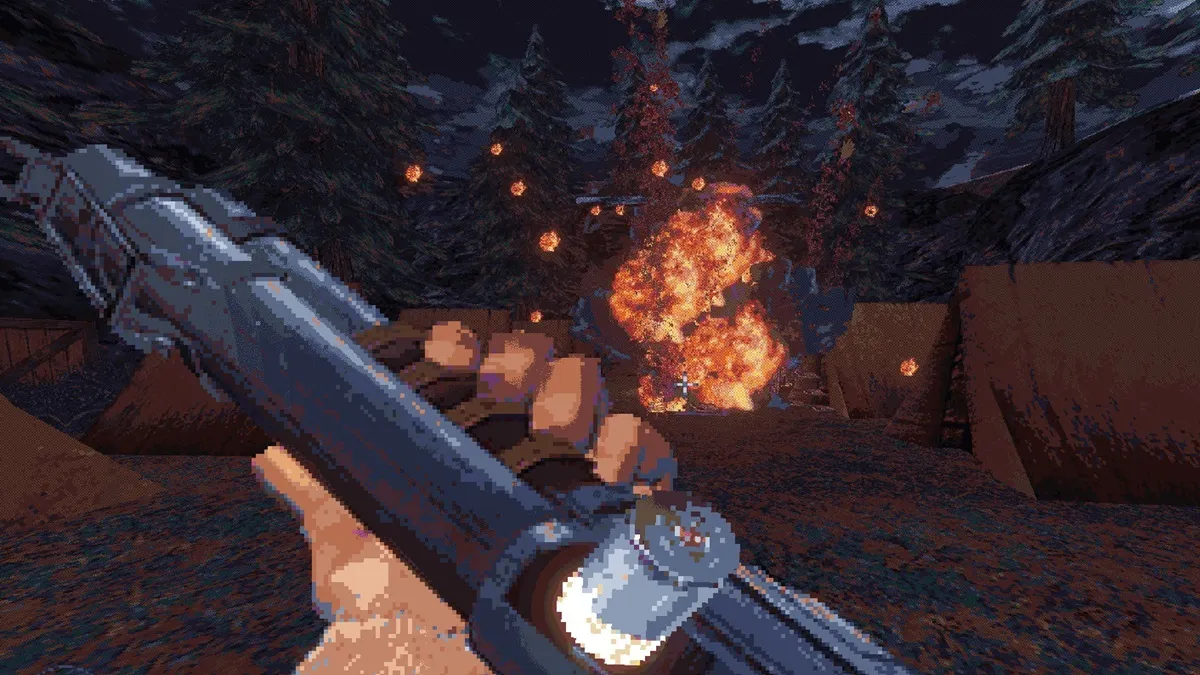Lil Gator Game is a delightfully charming game that can best be described as Breath of the Wild by way of A Short Hike. That comparison is perhaps a bit reductive, but it’s a strong pitch all the same. It’s a game that captures a good deal of what those two games did well: the boundless exploration of Breath of the Wild and the irresistible charm and small-scale form of A Short Hike.
The premise is that the titular gator and their sister used to play an imaginary version of their favorite game. It’s been years since they last did so and the gator has now roped their friends in to help them put on a large scale version of it to try and rope their sister into playing while she’s home from college. It’s a cute story about growing up and navigating the fine balance between working and downtime.
The small-scale form is key to what makes Lil Gator Game work. While most games riffing on Breath of the Wild tend to be set in massive open worlds, Lil Gator Game takes place on a small island. The space is still quite large, all things considered, but you can cross from one side to the other on foot in mere minutes. The biggest advantage that comes with this is that there isn’t any empty space. Everything feels designed, for lack of a better phrase, as opposed to a lot of space acting as empty filler between landmarks. It has purpose beyond being downtime between activities.
That isn’t inherently bad, mind you. Traveling around in Sable worked because the act of travel itself felt meaningful. Moving through the desolate deserts had a meditative quality that suited the solitude that defined much of Sable. But often massive worlds have the problem of using their space poorly. Whenever I’ve played some of the more traditional open world games (Assassin’s Creed Origins and Horizon Zero Dawn to name a couple examples), I never actually enjoyed moving through the world. I was only doing it so I could unlock fast travel points so I could get to wherever I needed to with ease. There was no fun, no joy, no wonder to traversing those worlds because there’s no reason to exist in it other than to pass through it to get to your next objective.

Lil Gator Game sidesteps this in part thanks to its smaller scale, but also the very design of the island as well. This is not an intricately designed space that has tons of secrets or activities, but it is one that is always fun to clamber around. Moving around is quick and feels good because of how well it leverages the minimal amount of friction to make climbing just interesting enough to feel involved. Stamina dictates how long you can climb, but you usually have plenty of objects to climb and use as stepping stones to mitigate the limitations of your current amount of stamina. There’s plenty of quests to take on and tons of cardboard monsters to destroy as well, but, crucially, the game only points you toward the main essential quests. Everything else you have to find yourself (until the post-game, anyway).
It encourages you to poke around and see what you can find. When I wrote about Breath of the Wild back in 2017, I praised it because just wandering around felt good and worthwhile. It encouraged you to do so – not just for the potential to find something, but for its own sake – something the altgames space had been doing for years at that point. (And then Sable came around and did it even better than Zelda.) Lil Gator Game is nowhere near the size of those games, but it does embody the same philosophy of making its world worthwhile to roam. The entire island feels like a space made to be explored to its fullest. It’s a playground to have fun roaming around in. It’s densely packed, begging you to poke around every nook and cranny, a prospect that’s far more compelling when you aren’t faced with covering a massive landmass to see even half of everything it has to offer.
As enjoyable as exploring massive spaces can be – I spent a lot of time willingly seeing as much as I could of the world in Elden Ring – lowering the scale is beneficial when huge, sprawling worlds are the norm. The mere thought of one can be enough to make me feel exhausted sometimes. As much as I enjoy Elden Ring and regularly think about going back for another playthrough, the sheer size and scope of the game gives me pause. Do I really have the energy for something that big?
It’s partially what makes smaller-scale worlds more enticing. Short-form experiences are quick, more focused; able to hone in on an idea or two and explore them enough to be fulfilling without risk of overstaying their welcome. Apply that philosophy to open worlds and you get one that’s not as tiring to think about. Lil Gator Game is great for numerous reasons, but for me, the fact that it can pull off the appeal of open world design on a smaller scale without feeling constrained is one its greatest strengths.

